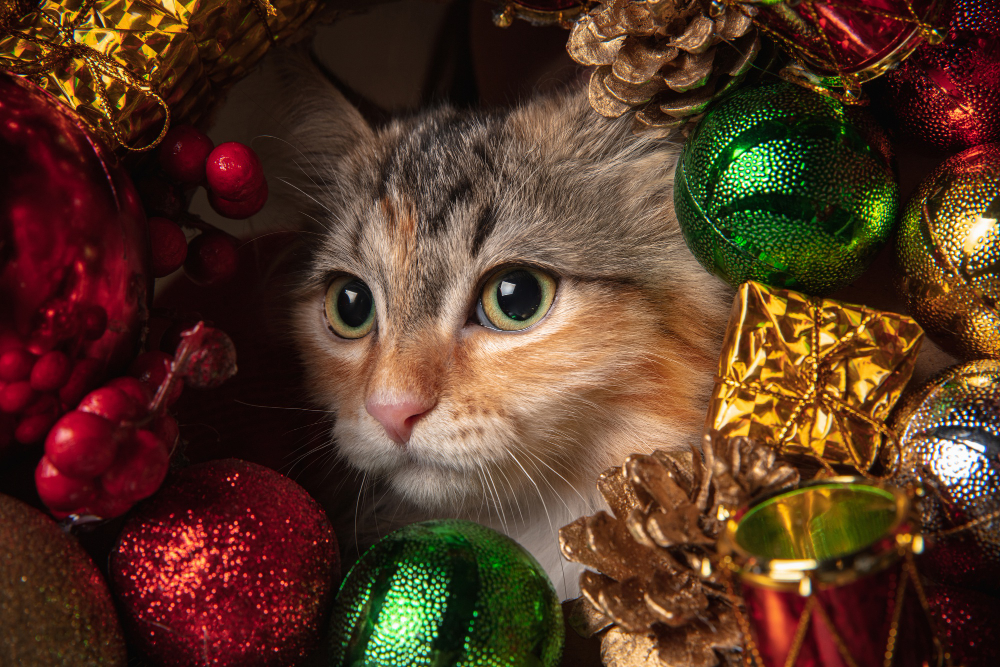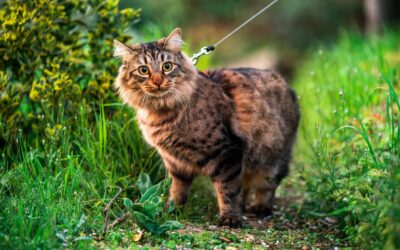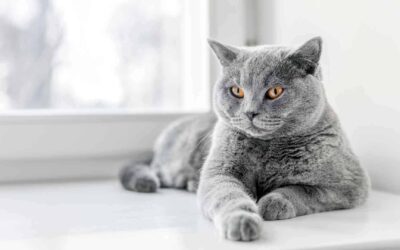Keeping Your Cat Healthy and Stress-Free During the Holidays

The holiday season is a time of joy, celebration, and togetherness for many families. However, for our feline companions, the hustle and bustle of the holidays can be a source of significant stress. Cats thrive on routine, and the holiday season disrupts it, harming their well-being.
New sights, sounds, and smells can stress cats. This can cause problems like excessive grooming, hiding, and loss of appetite. It may even lead to inappropriate elimination. Additionally, the home’s influx of visitors, decorations, and new items can overwhelm our feline friends.
So, in this article, we will discover how to keep your cat healthy and stress-free during the holidays, from how to prepare your home for a cat-safe holiday and manage dietary changes and treats to how to travel with cats and deal with loud noises like fireworks.
Preparing Your Home for a Cat-Safe Holiday
One of the most effective ways to reduce holiday stress for cats is to create a safe and secure environment within your home. First, find potential hazards. Then, make adjustments to keep your cat safe.
- Decorations: Avoid using decorations that can be easily knocked over or ingested by your cat. Secure Christmas trees and decorations to prevent them from toppling. Keep tinsel, ribbons, and small ornaments out of reach.
- Electrical Cords: Cats are naturally curious and may be tempted to chew on electrical cords, which can be dangerous. Conceal or cover cords to prevent accidents and potential injuries.
- Plants: Many holiday plants, such as poinsettias, mistletoe, and holly, can be toxic to cats if ingested. Consider using artificial plants or keeping live plants out of reach.
- Candles and Fireplaces: Lit candles and fireplaces can pose a burn risk to curious cats. Always supervise your cat when using these items. Consider using flameless candles or keeping your cat in a separate room during fireplace use.
Managing Dietary Changes and Treats
The holiday season often brings an abundance of treats and special foods, which can be tempting to share with our feline companions. However, you should manage your cat’s diet to prevent digestive issues.
- Stick to Their Regular Diet: It’s tempting to give your cat holiday treats. But, it’s best to stick to their regular, balanced diet. Sudden changes in diet can lead to digestive upset and other health problems.
- Limit Treats: If you give your cat occasional treats, opt for cat-safe options and limit the quantity. Avoid feeding them table scraps, which can contain harmful ingredients.
- Hydration: Ensure your cat has access to fresh, clean water. The increased activity and excitement during the holidays can cause dehydration, leading to health issues.
Traveling with Cats during the Holidays
For many families, the holiday season involves traveling to visit loved ones or go on vacation. If you plan to travel with your cat, make sure that you prepare them for the journey and ensure its safety and comfort throughout the trip.
Traveling with Cats: Tips for a Smooth Journey
- Acclimate Your Cat to the Carrier: Introduce your cat to the carrier well before the travel date. Place treats, toys, and familiar bedding inside to create a positive association with the carrier.
- Secure the Carrier: During the journey, ensure the carrier is securely fastened and placed in a safe location, such as on the floor or a sturdy surface. Never place the carrier on a seat or in the trunk of a car.
- Provide Familiar Scents: Pack a familiar blanket or toy with your cat’s scent to help them feel more comfortable and secure during the trip.
- Schedule Stops: Plan for regular stops to allow your cat to use the litter box, stretch their legs, and have some water or a small snack.
- Avoid Sedation: Unless your vet recommends it, don’t sedate your cat for travel. It can harm their health and well-being.
Preparing a Cat Travel Kit
To ensure a stress-free journey, consider packing a travel kit with all the necessary supplies for your cat. This kit should include:
- Litter box and litter
- Food and water bowls
- Enough food and treats for the duration of the trip
- Familiar bedding and toys
- Grooming supplies
- Medications (if applicable)
- First-aid kit
- Updated health records and contact information for your veterinarian
Ensuring Safety and Identification
Before embarking on your trip, ensure your cat is properly identified with a collar and microchip. Update your contact info with the microchip company. Also, add a temporary travel tag with your destination and contact details.
Also, secure your cat’s carrier in the car to prevent it from sliding or tipping over during sudden stops or turns. Avoid opening the carrier while in transit, as this could allow your cat to escape and become lost in an unfamiliar environment.
Dealing with Fireworks and Loud Noises
Fireworks and loud noises are common during the holiday season, and they can be a significant source of stress for cats. The sudden, unpredictable sounds can cause fear and anxiety, which may lead to behavioral issues and health problems.
To help your cat cope with these disturbances, consider the following stress relievers:
Feliway Diffusers or Sprays
Feliway is a synthetic pheromone that mimics the natural calming pheromones produced by cats. Using Feliway diffusers or sprays in your home can help. They create a sense of familiarity and security for your cat. This can reduce their stress during loud events like fireworks.
Calming Collars
Calming collars can help your cat. Those infused with pheromones or natural calming aids, like lavender, are best. They provide a constant source of stress relief. These collars release soothing scents that can help your cat feel more relaxed and secure, even in the face of loud noises.
Safe Spaces and Hiding Spots
Provide your cat with safe, quiet spaces to retreat to during loud events. This could be a cozy carrier, a covered bed, or a room with minimal noise and disturbances. Make sure these spaces have familiar bedding, toys, and access to water and litter boxes. This will encourage your cat to use them during stressful times.
The Importance of Regular Vet Check-ups
Stress can weaken a cat’s immune system, making it more prone to illness and worsening existing health issues. This is especially true during stressful times, like the holidays, which is why regular vet check-ups are vital for your cat’s health.
That’s why pet insurance ensures that you can afford to keep up with your cat’s healthcare needs without financial strain by covering routine vet visits, diagnostics, and treatments,
During your cat’s annual or bi-annual check-up, your veterinarian can:
- Assess Overall Health: Examine your cat and run tests. This will check its health and find any issues that may need treatment.
- Monitor Weight and Nutrition: Keep your cat at a healthy weight. Proper nutrition can help them cope with stress.
- Update Vaccinations: Keep your cat’s vaccinations up-to-date. This protects them from diseases that can harm their health during stressful times.
- Discuss Behavioral Concerns: Address any behavior changes related to stress. Seek guidance on management techniques.
- Your vet may recommend preventative care, such as parasite control or dental care, which can reduce stress on your cat’s health.




